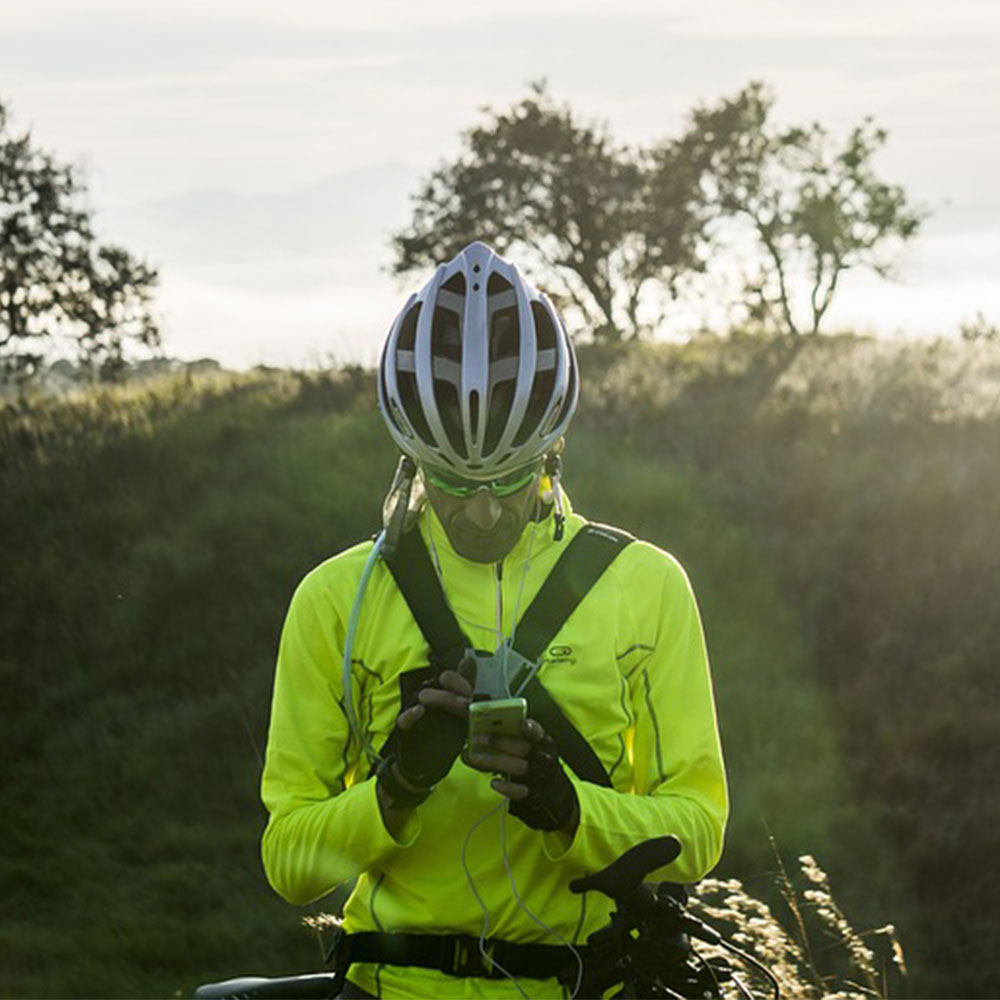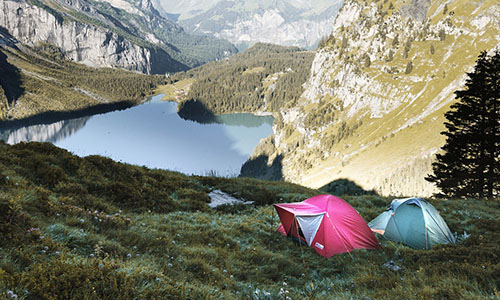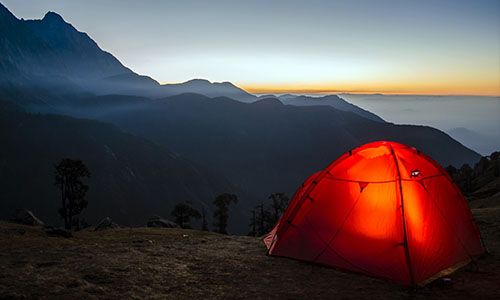4 Things You Need to Know for a Fun Camping Experience
Author

Chris shares his passion for cycling, hiking, skiing, and climbing from Buxton, in the Peak District. As a blogger for Outdoor Look, Chris shares outdoor tips and indoor tricks to help you get the most out of your time spent outside. When he's not out adventuring he's making videos or trying to keep up with his 4-year-old son.
 Whether you are a beginner or a camping expert, there are some important things that every camper needs to know for a fun and safe camping experience. When you’re camping with an instructor, he’ll guide you through every step of camping and all equipment are provided by the camping service. But when you are camping alone, you’ll have to be more careful and should keep these things in mind for a memorable camping trip.
Whether you are a beginner or a camping expert, there are some important things that every camper needs to know for a fun and safe camping experience. When you’re camping with an instructor, he’ll guide you through every step of camping and all equipment are provided by the camping service. But when you are camping alone, you’ll have to be more careful and should keep these things in mind for a memorable camping trip.
Is It Necessary to Set up a Tent?
Having your shelter during an outdoor adventure is always recommended. There are some campers who prefer tents while others go for tarps as they are lightweight and easy to carry.
Yes, it is necessary to set up a tent on a campsite as this will help the squirrels, bears, and deers know the location of the humans so, that they’ll not enter into your space.
Let us assume, the weather is pleasant and you’re not planning to set up your tent. You want to enjoy the beautiful weather and sleep under the stars. In this case, you should think twice before settling for your choice. The weather varies a lot during the night and your sleep might get disturbed by the rain. Therefore, it is recommended to keep your gear by your side so that you can immediately set up your tent in that situation.
Food Storage
 When you camp in the wilderness, you should keep your food fresh and protected from bugs. For this, you can carry airtight containers, storage bottles, and portable fridge or cooler. You can keep all the dry ingredients and other non-perishable food items in them. Storage bottles and cooler are useful to store fluids and perishable foods respectively. It is recommended to keep your food away from your tent as the raccoons, bear and other wildlife creatures may search for your food near you (in case they reach your space).
When you camp in the wilderness, you should keep your food fresh and protected from bugs. For this, you can carry airtight containers, storage bottles, and portable fridge or cooler. You can keep all the dry ingredients and other non-perishable food items in them. Storage bottles and cooler are useful to store fluids and perishable foods respectively. It is recommended to keep your food away from your tent as the raccoons, bear and other wildlife creatures may search for your food near you (in case they reach your space).
How to Sleep Restfully?
When you reach your campsite after long hours of hiking and exploring, you’re ready for a sound and restful sleep. Make sure to carry a sleeping bag with you to stay warm and sleep comfortably in the night.
You should opt for a lightweight sleeping bag as it is easy to carry and keeps you warm. Many people mistakenly invest in a heavier sleeping bag which not only adds an unnecessary bulk to carry, but can also make you sweat in the night. Therefore, before buying a sleeping bag, a little research about the sleeping bag temperature and weather-conditions is recommended.
Leave No Trace
‘Leave No Trace’ principles say that there should be nothing left behind on the campsite. You should properly dispose to protect the environment.
It is recommended for you to head away at least 100 yards from the campsite, trails, and the water sources. Dig an 8” deep hole, dispose of your waste, and cover the hole with the soil. Once done, use a hand sanitizer to maintain hygiene.
Author

Chris shares his passion for cycling, hiking, skiing, and climbing from Buxton, in the Peak District. As a blogger for Outdoor Look, Chris shares outdoor tips and indoor tricks to help you get the most out of your time spent outside. When he's not out adventuring he's making videos or trying to keep up with his 4-year-old son.
- Speed Up Your Post-Hike Recovery with These 6 Essential Tips
- Cycling through Tranquil Roads and Coastal Views on the Isle of Wight
- The Essential Guide to Hiking Safety: 5 Tips Every Hiker Should Know
- Run Smart, Run Strong: Your Guide to Injury-Free Running
- Embrace Biking: Essential Tips for Beginners
Categories
- Sport (28)
- Product Reviews (3)
- Team Outdoor Look (7)
- Mike Wild (2)
- Mike Payton (2)
- Suse Hammond-Pears (3)
- Snowboarding (12)
- Latest Offers (105)
- Shop Talk (1)
- Competitions (7)
- Walking (413)
- Lifestyle Fashion (8)
- Travel (86)
- Kit Guides (176)
- Workwear Clothing (6)
- Safety Workwear (4)
- Health/Fitness (289)
- Skiing (91)
- Great Outdoors (1316)
- Cycling (92)
- January 2025
- December 2024
- November 2024
- October 2024
- September 2024
- August 2024
- July 2024
- June 2024
- May 2024
- April 2024
- March 2024
- February 2024
- January 2024
- December 2023
- November 2023
- October 2023
- September 2023
- August 2023
- July 2023
- June 2023
- May 2023
- April 2023
- March 2023
- February 2023
- January 2023
- December 2022
- November 2022
- October 2022
- September 2022
- August 2022
- July 2022
- June 2022
- May 2022
- April 2022
- March 2022
- February 2022
- January 2022
- December 2021
- November 2021
- October 2021
- September 2021
- August 2021
- July 2021
- June 2021
- May 2021
- April 2021
- March 2021
- February 2021
- January 2021
- December 2020
- November 2020
- October 2020
- September 2020
- August 2020
- July 2020
- June 2020
- May 2020
- April 2020
- March 2020
- February 2020
- January 2020
- December 2019
- November 2019
- October 2019
- September 2019
- August 2019
- July 2019
- June 2019
- May 2019
- April 2019
- March 2019
- February 2019
- January 2019
- December 2018
- November 2018
- October 2018
- September 2018
- August 2018
- July 2018
- June 2018
- May 2018
- April 2018
- March 2018
- February 2018
- January 2018
- December 2017
- November 2017
- October 2017
- September 2017
- August 2017
- July 2017
- June 2017
- May 2017
- April 2017
- March 2017
- February 2017
- January 2017
- December 2016
- November 2016
- October 2016
- September 2016
- August 2016
- July 2016
- June 2016
- May 2016
- April 2016
- March 2016
- February 2016
- January 2016
- December 2015
- November 2015
- October 2015
- September 2015
- August 2015
- July 2015
- June 2015
- May 2015
- April 2015
- March 2015
- February 2015
- January 2015
- December 2014
- November 2014
- October 2014
- September 2014
- August 2014
- July 2014
- June 2014
- May 2014
- April 2014
- March 2014
- February 2014
- January 2014
- December 2013
- November 2013
- October 2013
- September 2013
- August 2013
- July 2013
- June 2013
- May 2013
- April 2013
- March 2013
- February 2013
- January 2013
- December 2012
- November 2012
- October 2012
- September 2012
- August 2012
- July 2012
- June 2012
- May 2012
- April 2012
- March 2012
- February 2012
- January 2012
- December 2011
- November 2011
- October 2011
- September 2011
- August 2011
- May 2010
- April 2010
- March 2010
- February 2010
- January 2010
- November 2009
- October 2009
- September 2009
Submit a Comment